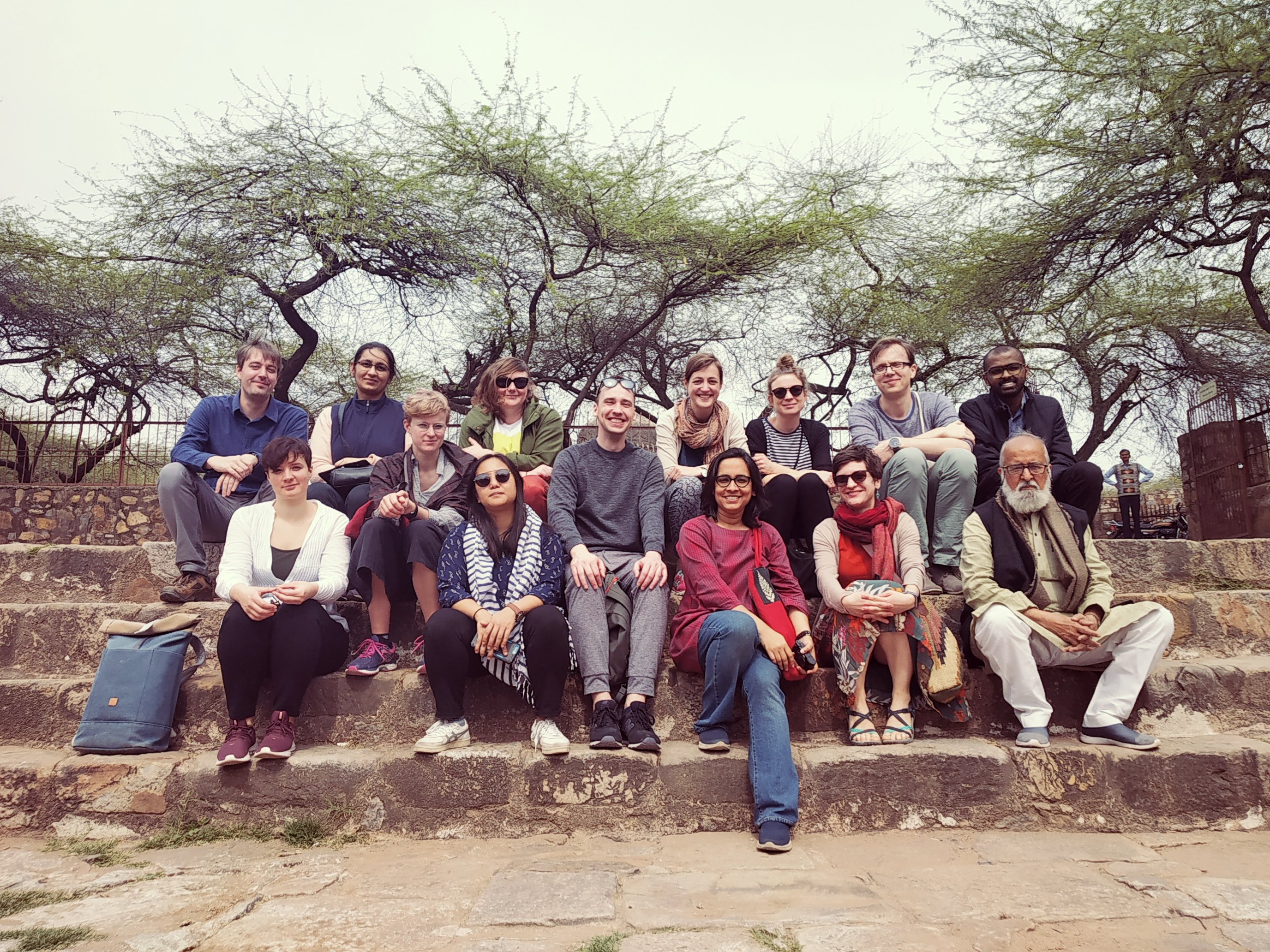News

Winter School Global History (17th - 21th February 2020)

From 17th to 21st February 2020, the Max Weber Stiftung India Branch Office, the Heidelberg Centre for Transcultural Studies (HCTS) and the German Historical Institute London (GHIL) jointly organized the Winter School "Global History: Challenges and opportunities" for German and Indian PhD-students in Delhi. The local representatives of the SAI Delhi Branch Office and the Max Weber Stiftung Indian Branch Office closely cooperated to realize this event. In total, 19 PhD-students from various universities in India and Germany participated in the Winter School.
The Winter School consisted of three thematic modules that addressed different areas of study, including the history of pedagogic practice, the history of peripatetic objects and the history of labor. Each of these topics was introduced by an expert and then discussed with the participants of the Winter School. While Parimala V Rao (Jawaharlal Nehru University) conducted the module on the history of pedagogic practice, Monica Juneja (HCTS) and Prabhu Mohapatra (Delhi University) took over the modules on the history of peripatetic objects and the history of labor respectively. Participants were encouraged to think about the possibilities offered by the concept of global history and the ways in which their various research topics could benefit from this particular approach that aims at overcoming the dominant framing of research topics in the discipline of history within regional and national boundaries. Addressing this overarching objective of the Winter School, each module featured stimulating presentations by the experts and fostered lively discussions among the participants.Another element of the Winter School was a panel discussion about the languages of global history during which various scholars discussed their work in relation to the topic of the Winter School. Felix Brahm (GHIL), Monica Juneja (HCTS), Joachim Kurtz (HCTS), Dhruv Raina (Jawaharlal Nehru University) and Rekha Vaidya Rajan (Jawaharlal Nehru University) outlined the ways in which they apply the languages of global history in their work. Neeladri Bhattacharya (Jawaharlal Nehru University) acted as chair and provided insightful comments on all presentations, identifying their common themes and perspectives in light of the concept of global history. The panel discussion demonstrated how works that address a variety of different topics such as the concept of art, firearms trade in the nineteenth century and the history of scientific knowledge can speak to each other when looked at through the conceptual lens of global history.
The Winter School also included a heritage walk through the neighborhood of Mehrauli which was attended by several participants. The walk was guided by academician, historian and filmmaker Sohail Hashmi who familiarized participants with the historical landmarks of the neighborhood, outlined the architectural features of mosques, graves and water tanks in the area and talked about contemporary attempts aiming at the preservation of these monuments. This event enabled participants of the Winter School to get a first-hand experience of the living and breathing history of Delhi and its significance in the current cityspace.
During the final two days of the Winter School, participants presented their own research projects, their research methodology and the ways in which they engage with global history approaches in their work. In addition, posters summarizing their respective research projects which they had prepared in advance of the Winter School were exhibited at the event venue. The participants received feedback on their projects from the experts and organizers of the Winter School and in turn provided feedback on how to improve future events within this framework to the organizers of the Winter School.
Posted on 11 Mar 2020
Webmaster: E-Mail


